7 simple strategies for getting food-avoidant kids to eat
Because there's more to life than bread and pasta.
Products are chosen independently by our editors. Purchases made through our links may earn us a commission.
Getting my food-avoidant, super picky kid to eat healthily has been a challenge for most of his 9.5-year life. Since he was a wee one, I’ve been testing out products and trying out different tactics to see if I could get anything nutritious into his body. For kids who have Sensory Processing Disorder—like my son does—carbs are life. He likes bread, pasta, and, well, bread and pasta. Tan foods, essentially. He’ll also eat meat, which also lives in the same color family. But fruits and vegetables? Not a chance, unless I can present it in a way that feels less threatening.
Getting your food-avoidant kid to try new foods can be emotionally exhausting—especially when we put so much pressure onto the process. We all want what’s best for our kids, and sometimes that means stepping back and finding a new way to approach a situation so that we are setting them up for as much success as possible.
Here are seven tried and (mostly) true strategies that have worked to get my food avoidant kid more interested in trying new things—and eating healthy.
1. Blend it
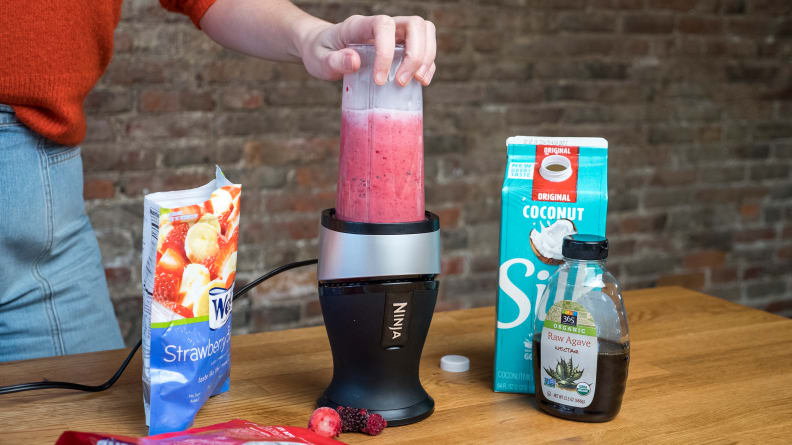
Make smooth sauces full of veggies with a powerful blender.
If I want my kid to eat anything green, there’s a good chance I have to blend it up and “hide” it in the sauce. We talk about it being in there, and sometimes I can even get him to come drop some kale into our Ninja Pro countertop blender. Before I got this blender, I used the Nutribullet for years. We upgraded to a countertop blender when we began cooking for more people.
Some of our favorite sauces to blend up are spaghetti sauce (throw a heaping pile of kale into it), some vegan cheese sauce for macaroni and cheese, and mixing up the sauce of a vegan curry that we love (with potatoes added).
- Get the Ninja Professional Blender on Amazon for $99.99
- Get the Nutribullet Pro Plus on Amazon for $87.99
2. Get them cooking
Once upon a time, I was desperate-with-a-capital-D to get my kid to eat healthier foods. I resorted to begging, frustration, hiding food, bribery, and all the things that aren’t helpful for creating a healthy relationship with food. Eventually, meal times became a major stressor for both of us and he started to avoid even looking at a new food because he thought I’d try to harass him into eating it.
Thankfully, I learned my lesson and backed off with the intention of making food fun again. To do this, I started encouraging him to find recipes in cookbooks created for kids and make the food for me (because he was still reluctant to try it). It worked wonderfully as far as getting him more excited about food in general, and gradually he has started trying his own food.
- Get The Complete Cookbook for Young Chefs on Amazon for $11.85
- Get Pretend Soup and Other Real Recipes: A Cookbook for Preschoolers and Up on Amazon for $12.49
3. Invest in popsicle molds
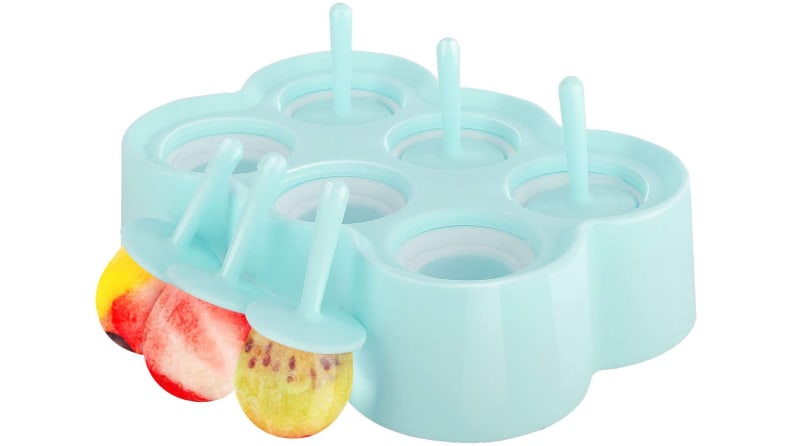
Popsicles are a great way to get kids to eat more fruits and veggies.
When it comes to my son eating more veggies, we need our blender, a piece of cheesecloth or strainer to get the chunks out of blended food, and awesome popsicle molds. My son refuses to even look at a smoothie, but popsicles are another story. He isn’t a fan of chunks of anything or seeds in the food, but there's an easy solution.
I add greens, fruits, coconut water, sometimes Vitamin D drops, and all the other good stuff that I can put into a popsicle mold, and then freeze it. And voilà! Healthy popsicles that a food-avoidant kid can get excited about.
Get Nuovoware Ice Pop Molds on Amazon for $5.99
4. Utilize cookie cutters

Use sandwich cutters to make lunchtime more appealing.
We have to get crafty over here to make food more enticing, even at 9 years old. Online I’ve been able to find sandwich-sized cutouts to transform different sandwiches into the shape of penguins and elephants. I’ve also found smaller cookie cutters that are great for cutting out different shapes for veggie patties that can be baked, or even just cutting out a cool (albeit tiny) shape into a carrot or piece of cucumber (that he sometimes eats and sometimes doesn’t).
- Get a Bear-Shaped Sandwich Mold at Shein for $1.50
- Get a set of 9 Vegetable Cutters on Amazon for $10.99
5. Pay attention to the things that get them excited
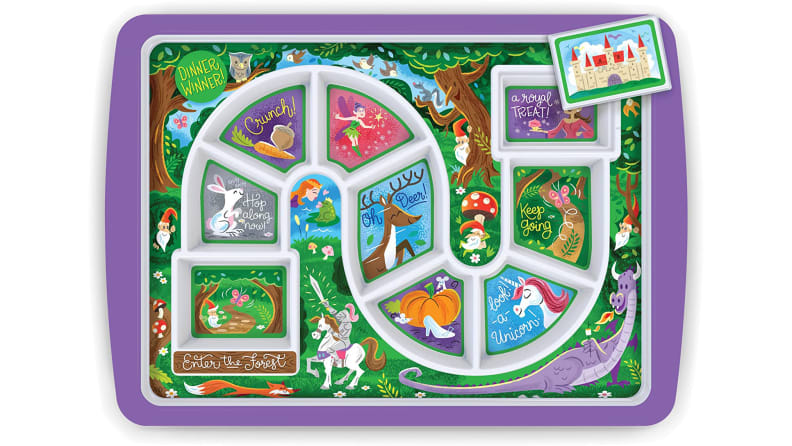
A colorful and fun plate may inspire them to try new foods.
Is there a certain topic that your child loves? It doesn’t really matter if your child is 2 years old or 10, there are ways to incorporate the things they love into their food preparations. This could take the form of creating a meal for their favorite characters, or what they think they would eat.
This also comes in the form of using plates and utensils that are designed to make eating fun. The latter sometimes works better for younger kids, but my son still loves eating off of his Ninja Turtles plate.
- Get the Enchanted Forest Kids Dinner Tray on Amazon for $17.85
- Get the Dinneractive Utensil Set on Amazon for $14.99
6. Teach them knife skills
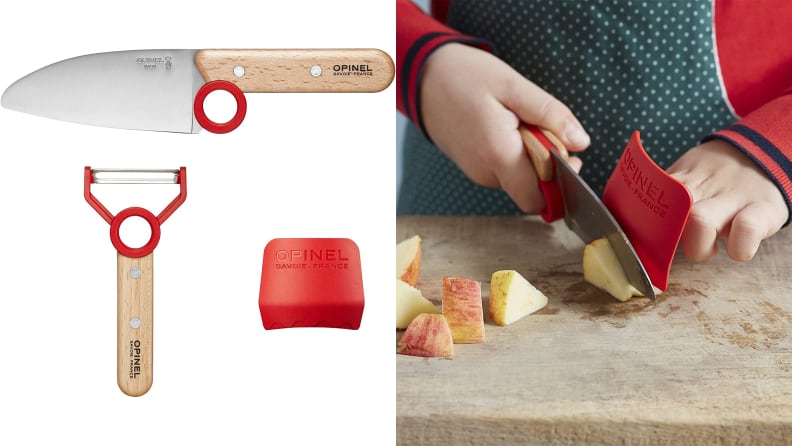
A child-sized knife makes food prep more fun.
Letting kids use knives can be a little scary, especially if it’s not a regular practice in your house. What if they cut their fingers off? The good news is that with some mindfulness, supervision, assessing your child’s capabilities, and potentially investing in some good knives designed to be used by children, you are on your way to having a child who gets excited about one part of the food-eating process.
Preparation is a big part of making food, and allowing your child a bigger role in this process will get them more comfortable around the foods that they eat (or don’t eat).
Get the Le Petit Chef Knife Set at Food52 for $49
7. Offer a variety of options
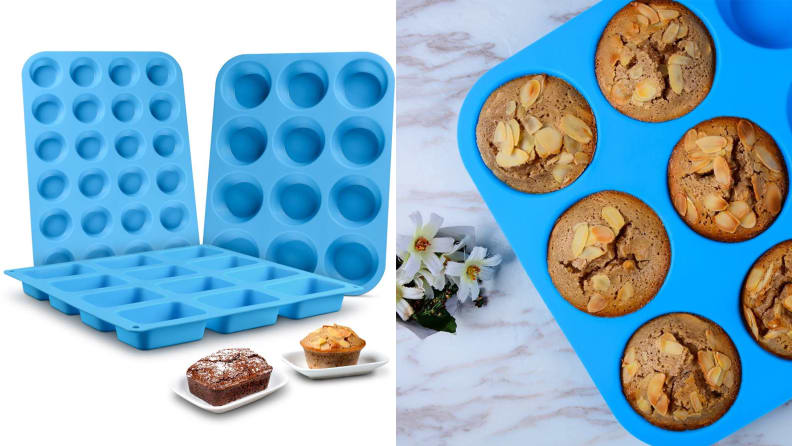
Preparing food in muffin tins makes cute bites that are more palatable to picky eaters.
The last strategy that “works”—meaning my kid actually eats it—is to use muffin tins of various shapes and sizes to create different meals. You can make egg dishes, oatmeal dishes, bacon dishes, baked goods, and so many other things inside of these trays. And then when you serve them, offer them with a variety of different choices.
I like to use a plate with different separated sections for different foods. Then I put the new thing on the tray and combine that with foods that I know he likes. I take all of the pressure away by explaining what the new thing is. I might encourage him to smell it or explain what’s in it if he didn’t help make it, and then I point out all of the foods he does like. Then he can eat what he wants and I know he'll find at least one or two things he likes.
Get a set of three silicone muffin pans on Amazon for $20.99


